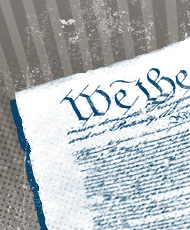Guantánamo Prisoner Successfully Challenges Unlawful Detention

Newly-Released Judicial Opinion Explains Decision Ordering Release Of Mohamedou Salahi
FOR IMMEDIATE RELEASE
CONTACT: (212) 549-2666; media@aclu.org
NEW YORK – A Washington D.C. federal court opinion ordering the release of Guantánamo prisoner Mohamedou Ould Salahi (sometimes spelled “Slahi”) and providing the reasons for the granting of his habeas corpus petition was made public today. Federal District Judge James Robertson ruled on March 22 that the U.S. could not continue to detain Salahi, a Mauritanian citizen who has been in U.S. custody since 2001. Judge Robertson’s opinion was released today after undergoing a classification review; some portions were withheld as classified.
The American Civil Liberties Union joined attorneys Nancy Hollander and Theresa Duncan of the law firm Freedman Boyd Hollander Goldberg Ives & Duncan P.A. and Linda Moreno of Linda Moreno P.A. in challenging Salahi’s detention, arguing that the government had no reliable evidence that he was part of al-Qaeda when he was seized in 2001.
“After subjecting Mr. Salahi to illegal renditions to three countries, brutal physical and psychological torture and almost daily interrogations for most of the nine years he has been in U.S. custody, the government could not even tip the scales ever so slightly to justify Mr. Salahi’s detention,” said Hollander, the lead attorney in the case. “It is well past time for him to go home.”
“As Judge Robertson’s opinion makes clear, the allegations that Mr. Salahi participated in the so-called Millennium Plot to attack the Los Angeles airport and recruited two of the 9/11 hijackers are not supported by any credible evidence,” said Duncan. “The truth is the government was wrong when it first detained him, wrong when it tortured him and is wrong in continuing to detain him.”
After Salahi was arrested in Mauritania on suspicion of ties to al-Qaeda, the U.S. government illegally rendered him to Jordan, where he was detained, interrogated and abused for eight months. He was then rendered to Bagram, Afghanistan and finally to Guantánamo, where he has been held in U.S. custody since August 2002.
“Salahi’s illegal detention for more than eight years without charge or trial embodies the most egregious abuses of Guantánamo,” said Jonathan Hafetz, staff attorney with the ACLU National Security Project. “The district court’s decision invalidating that detention and ordering Salahi’s release is an important step towards restoring the rule of law.”
While at Guantánamo, Salahi was held in total isolation for months, kept in a freezing cold cell, shackled to the floor, deprived of food, made to drink salt water, forced to stand in a room with strobe lights and heavy metal music for hours at a time, threatened with harm to his family, forbidden from praying, beaten and subjected to the “frequent flyer” program, during which he was awakened every few hours to deprive him of sleep. The government falsely told him that his mother had been arrested and was being sent to Guantánamo. Salahi’s abuse was confirmed and well documented in a 2009 report by the Senate Armed Services Committee that investigated allegations of detainee abuse at Guantánamo.
Marine Corps Lt. Col. Stuart Couch, a military lawyer originally assigned to prosecute the case against Salahi in the military commissions, determined that Salahi’s self-incriminating statements were so tainted by torture that they couldn’t ethically be used against him. Couch told his supervisors that he was “morally opposed” to Salahi’s treatment and for that reason he refused to participate in the prosecution.
The original habeas challenge to Salahi’s unlawful detention was filed in 2005 in U.S. District Court for the District of Columbia. The Department of Justice is appealing Judge Robertson’s decision.
Lawyers on the case are Nancy Hollander and Theresa Duncan of Freedman Boyd Hollander Goldberg Ives & Duncan P.A.; Linda Moreno of Linda Moreno P.A.; Jonathan Hafetz, Melissa Goodman and Jonathan Manes of the ACLU; Arthur Spitzer of the ACLU of the Nation’s Capital; Brahim Ould Ebety of Nouakchott, Mauritania; and Emmanuel Altit of Paris, France.
The ruling is available online at: www.aclu.org/national-security/salahi-v-obama-et-al-order
Stay Informed
Every month, you'll receive regular roundups of the most important civil rights and civil liberties developments. Remember: a well-informed citizenry is the best defense against tyranny.

